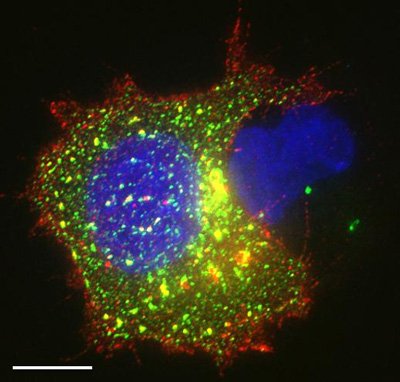Researchers identify interactions between immune system pathways
Posted: 17 June 2016 | Victoria White, Digital Content Producer | No comments yet
Researchers have identified interactions between immune system pathways which could improve the treatment of diseases such as inflammatory bowel disease…


Activated immune cells. CREDIT: The University of Queensland
An international team have identified interactions between immune system pathways which could improve the treatment of diseases such as inflammatory bowel disease (IBD).
Professor Matt Cooper from University of Queensland‘s Institute for Molecular Bioscience (IMB) explained that the immune system is basically comprised of two parts: the adaptive immune system, which produces antibodies against an infection, and a very ancient pathway, known as the innate immune system.
“Innate immunity is so old it goes all the way down to frogs, fish and even insects,” Professor Cooper said. “It stops us getting infections, but it also drives a lot of inflammatory diseases. So, in one case it’s keeping us alive by stopping the bugs getting us, but if it goes wrong, we start to get diseases like arthritis, multiple sclerosis and IBDs such as colitis.”
Professor Cooper added: “Researchers always thought key components of these pathways acted alone, but our teams have discovered they can communicate and work together.”
Implications for autoimmune and inflammatory diseases
The discovery may have significant implications for treating a range of autoimmune and inflammatory diseases.
“Inflammation in diseases such as colitis occurs when the immune system is activated inappropriately, and causes symptoms including pain, diarrhoea, fever and weight loss,” Professor Cooper said. “Current treatments are not always effective, possibly because they are only blocking one of the key pathways and inflammation still occurs through the other pathway.”
Professor Cooper and the international team have developed two small molecules that each block one pathway. In tests, the molecules reduced inflammation when administered separately.
Professor Cooper said: “This work is still in the early stages but we are hopeful our ongoing research will lead to more effective treatments for the millions of IBD sufferers.”
The research teams were led by Professor Claudia Kemper from Kings College London, UK and the National Institutes of Health, USA.
Related conditions
Inflammatory bowel disease (IBD)
Related organisations
Queensland University


